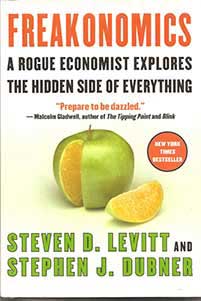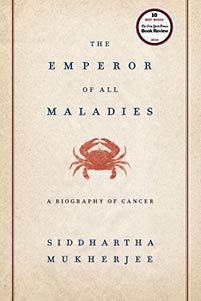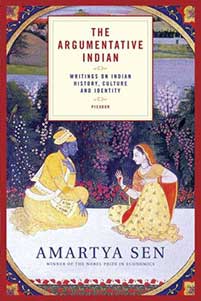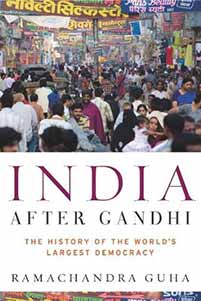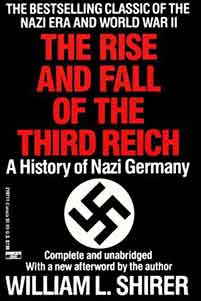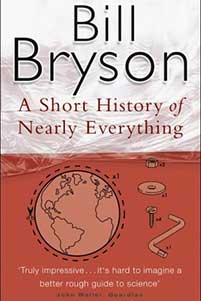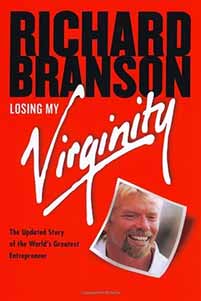Beyond the Syllabus: 10 must-read non-fiction books
Ever heard of a high school and college syllabus book inspire someone or help change their perceptions about things. So why not go beyond the syllabus and expand your understanding. Maybe you can give a few tips to your teacher too.
Why not read some books that will alter your perception and could probably shape your personality too. History, universe, statistics, reality, inspirational, autobiography – make these a part of your daily reading fodder.
We at Shiksha.com decided to list out ten must-read non-fiction books. Go ahead, read these and spread the knowledge. And the best part is you can re-read these books multiple times. Remember Oscar Wilde’s quote: “If one cannot enjoy reading a book over and over again, there is no use in reading it at all.”
1. The Google Story
Author: David A. Vise, Mark Malseed
The book will take you to inside the labyrinth of the famed Google office. The interesting part is the book was penned by someone who has limited access to the inside story. It charts Sergey Brin's and Larry Page's journey from dropping out of Stanford to creating a multibillion dollar firm that is shaking up conventions at every juncture. It also discusses Google’s expansion in China and the founders’ guiding mantra: DON'T BE EVIL.
Mind you, the book comes with a disclaimer: it was not created, authorised or endorsed by Google, Inc. Yet, we believe, this is a book you cannot afford to miss.
2. Freedom at Midnight
Author: Larry Collins, Dominique Lapierre
There comes a moment in every nation’s existence when incidents irrevocably alter its character and perception. The 1947 Partition of India is one such event.
This book takes a critical look at the Indian Independence Movement, Partition, creation of Pakistan, Lord Mountbatten and Mahatma Gandhi.
Author duo Dominique Lappierre and Larry Collins revisit the event that altered the history of India and try to understand the chief protagonists (Gandhi, Jinnah, Mountbatten, Nehru) of this event in a beautiful and soul-stirring narrative. The best part is it humanises each event while maintaining a neutral ground.
3. A Brief History of Time
Author: Stephen Hawkins
A best-seller since 1988, A Brief History of Time was the first book that tried to explain complex subjects such as cosmology, big bang, black holes, light cones, wormholes, quantum physics, the beginning of time and so on.
Hawkins explains some basic facts (which were earlier incomprehensible to masses) such as how universe can only move in one direction of time and cannot move backwards. He also puts limits to the powers of “God”.
4. Freakonomics
Author: Steven D. Levitt, Stephen J. Dubner
Freakanomics is a collection of “economic” articles that delves into unusual and diverse subject, traditionally not considered by economists. As a matter of fact, many readers argue that the book is not really about “economics” but how statistical analysis can solve a various range of subjects.
The book discusses the inner workings of a crack gang, secrets of the Ku Klux Klan, truth about real-estate agents, etc. The stories present that economics is, at root, the study of incentives.
5. The Emperor of All Maladies: A Biography of Cancer
Author: Siddhartha Mukherjee
Time magazine has named it as one of the 100 most influential books in the last century. New York Times magazine considers it among the 100 best works of non-fiction. The book also won 2011 Pulitzer Prize for General Nonfiction. The jury called it “an elegant inquiry, at once clinical and personal.”
Written by Siddhartha Mukherjee, an Indian-born American physician and oncologist, the book takes us through the painful journey of cancer. It first traces the history of cancer (way back to the Egyptian civilization) and then moves on to the long struggles in surgery, radiation and chemotherapy to fight the disease. The final part discusses the prevention, genetics and pharmacology options.
6. The Argumentative Indian
Author: Amartya Sen
The Argumentative Indian is written by Nobel Prize winning Indian economist Amartya Sen. It is a collection of essays, categorised under four sections: i) Voice and Heterodoxy, ii) Culture and Communication, iii) Politics and Protest, and iv) Reason and Identity.
Sen tries to interpret India through ‘internal separatism and global isolation’. “India is often portrayed as a mishmash of separate religions, languages, ethnicities, and castes which are only loosely held together by the legacy of European colonialism. Sen rejects that claim completely and spends much of the book reviewing the history of two major Indian leaders - Ashoka and Akbar - as examples of India's pre-colonial embrace of pluralism and multiculturalism. Sen is equally critical of those who try to promote a sense of Indian national identity by rejecting any economic, social, or intellectual engagement with the West. In fact, he keenly observes that most anti-Western thought in India is, in fact, rooted in European intellectual circles,” states a Goodreads member, David.
7. India after Gandhi: The History of the World's Largest Democracy
Author: Ramachandra Guha
So what is this book all about?
“To me, Indian history always meant what happened till 1947 or perhaps my knowledge expands one little year further till Gandhiji's death. I was kept in the dark all these years about what happened once India gained its independence. Remember? None of our academic books mention what happened after India got its independence, either. But ironically that is the most crucial period of our country which tests our integrity, intelligence, power, responsibility and many more constitutional lessons to come. And this epic volume offers mountainous account of our pains (partition, Riots, assassinations of leaders), conflicts (never ending Kashmir problem, Nagaland 'land issues', trouble with tribal), humiliations (war with China), challenges (Constitution, new political parties, foreign policies, plans) and glories (inclusion of princely states, first general elections, wars with Pakistan etc,) of our country,” says a Goodreads member, Kali Srikanth, while describing the book.
8. The Rise and Fall of the Third Reich: A History of Nazi Germany
Author: William L. Shirer
A nonfiction work of art, The Rise and Fall of the Third Reich chronicles the rise and fall of the Nazi Germany from 1920s to 1945. It chronicles the Nazi era and German history, logically proceeding from Martin Luther to Adolf Hitler.
“This book is the first real attempt at a history of Nazi Germany. As such, it is a product of its times. The book offers an incredibly detailed look at the Third Reich impossible to find in any other work, and thus rightly stands as the definitive work on the subject,” says Erik, a Goodreads member.
9. A Short History of Nearly Everything
Author: Bill Bryson
This bestseller is a popular science book that attempts to explain general sciences such as astronomy, chemistry, paleontology and particle physics. The author also explores time from the Big Bang to the discovery of quantum mechanics, via evolution and geology. ‘Bryson tells the story of science through the stories of the people who made the discoveries, such as Edwin Hubble, Isaac Newton, and Albert Einstein,’ informs Wikipedia.
10. Losing my Virginity: The Autobiography
Author: Richard Branson
“Whatever happens, have a good time, and do not be afraid to make mistakes, for, if you do not make mistakes, you do not make anything,” Richard Branson, founder of founder of Virgin Group.
Richard Branson writes his own story in this best seller that traces his journey from rags to riches.
Explore more
Beyond the Syllabus: 10 must-read books before you hit your 20s
9 must-read books for MBA students and aspirants
Eight must watch movies for MBA students
Seven must watch movies for MBA aspirants
Beyond the syllabus: 10 websites you must visit daily
Beyond the syllabus: Five must watch science documentary series
Beyond your Syllabus: YouTube channels to sound smarter Part 1
Beyond your syllabus: YouTube channels to sound smarter Part 2
Beyond the syllabus: Eight must visit places in India for science students
This is a collection of news and articles on various topics ranging from course selection to college selection tips, exam preparation strategy to course comparison and more. The topics are from various streams inclu... Read Full Bio




